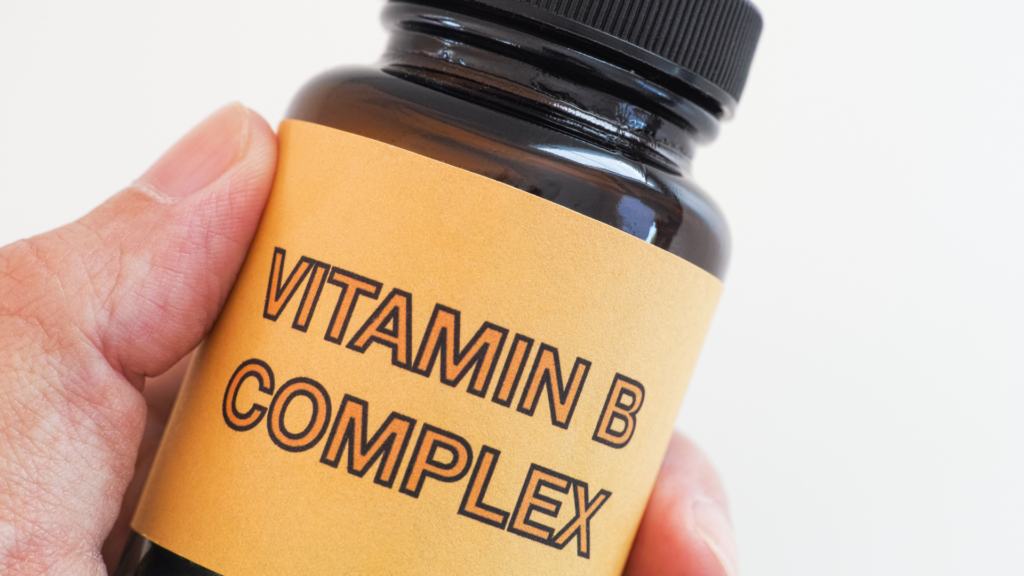
Fundamentally, B vitamins are responsible for metabolism, the generation of energy, and the construction of bioactive molecules. A majority of the B vitamins are water soluble and not stored within our bodies, but rather consumed through our diet. Manufactured foods, alcohol consumption, and cooking processes can all reduce the bioavailability of B vitamins and may result in a deficiency. B vitamins are essential for the production of energy within the body but do not provide direct energy by themselves. Each B vitamin is responsible for specific functions but overall they are important for healthy skin, muscles, brain, and nerve functionality. Despite having their own specific functions, the B vitamins work together to achieve the desired effects.
B1 also known as Thiamine is a necessary vitamin that helps convert carbohydrates into energy. Due to thiamine’s ability to assist with glucose metabolism, it has also been known to support individuals with diabetes. Clinical trials of thiamine supplementation have also shown to decrease blood sugar levels.
Riboflavin or B2 is a powerful antioxidant that may help fight free radicals and reduce the damage they cause. B2 is important for helping convert vitamin B6 and folate into forms that your body can use. Riboflavin helps your body maintain healthy skin and nails and also may promote hair growth. Managing skin conditions such as acne, dermatitis, eczema and rosacea is supported by the supplementation of B2 by helping reduce overall body inflammation.
Vitamin B3 or niacin is most well known for helping improve cholesterol levels in the body. B3 can moderately lower bad cholesterol while boosting good cholesterol levels. It is most commonly prescribed in conjunction with statins to assist in overall levels. Niacin is also known for being a coenzyme in which more than 400 enzymes are dependent on it for various reactions. Overall B3 helps convert nutrients into energy, create cholesterol and fats, assist in the creation and repair of DNA, and establish antioxidant effects.
Pantothenic acid also known as B5 is an essential nutrient for central nervous production. B5 helps the body assist in energy production as well as the development of amino acids, blood cells, vitamin D3 and other fatty acids. Pantothenic acid is critical in the manufacturing of sex and stress related hormones produced in the adrenal glands. Vitamin B5 assists in wound healing and reducing overall skin inflammation.
Vitamin B6 or pyridoxine helps support overall immune function and healthy nervous systems. Some research shows that deficiencies in B6 may lead to higher increases in rates of depression. Pyridoxine helps your body create serotonin which is a necessary hormone needed for elevating mood. Studies have also shown that B6 may help in alleviating morning sickness during pregnancy and is also important for fetal and infant brain development.